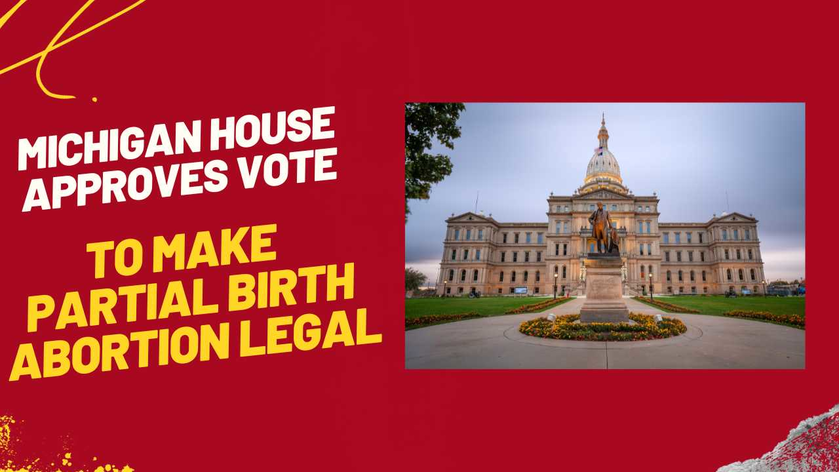LANSING, Mich - Michigan House Democrats approved late Wednesday a package of abortion bills. Democrats call the legislation the 'reproductive health care act'.
The one part of the legislation that was changed was Democrats dropped legislation that would do away with a 24-hour wait period before an abortion.
Rep. Whitsett, a Democrat from Detroit testified in the past she supported the waiting period.
I left my job in the main stream media to give you the real news. Click below to become a supporter to help my independent journalism.
The legislation would repeal Pubilc Act 328 of 1931 which now makes partial-birth abortions illegal in Michigan.
The legislation now goes to Gov. Whitmer's desk where she has said she would sign it.
State Rep. Josh Shriver wrote on Twitter claiming Michigan Democrats are trying to slip this legislation into law without anyone noticing.
TOMORROW, Michigan House Dems are poised to ram through the most extreme abortion legislation in America. They are very devious as well to get what they want. They added it to the agenda on Halloween night at the last minute because they were hoping few people would notice. We are onto their tricks and blowing the lid off their scheme to STOP THEM IN THEIR TRACKS.
Michigan Governor Gretchen Whitmer took to Twitter referencing abortion legislation.
Earlier this year we came together to solve a very scary problem—slaying the state's abortion ban, a "zombie"law that had been on the books since 1931. Unfortunately, other frightening laws surrounding abortion still remain. TRAP laws target healthcare providers with unnecessary, politically motivated regulations that do nothing to protect patients. It's time for them to bite the dust. You know what that means. I'll keep using every tool in my toolbox to put an end to these senseless laws so people can stay in control of their own bodies. Let's keep fighting to roll back these harmful restrictions
In 1997 a federal judge struck down a state law banning so-called “partial-birth abortions” as both unconstitutionally vague and an undue burden on a woman’s right of reproductive choice. The decision is the first in the nation to invalidate a ban that closely mirrors legislation being debated by Congress.
U.S. District Court Judge Gerald E. Rosen issued a permanent injunction blocking the ban from taking effect, ruling that law is so vague that it could apply to more than 85 percent of post-first-trimester abortions. The court held that the law therefore imposed an “undue burden” on women seeking to terminate a pregnancy.
The ruling came in response to a lawsuit brought by the American Civil Liberties Union and the Center for Reproductive Law & Policy. The plaintiffs, who included physicians and clinics, argued that the law’s language is so broad that it could ban virtually every safe method of abortion used after the first trimester.
In 2003 The nine-member US Supreme Court ruled five to four to ban the “partial-birth abortion” procedure in the United States. The court upheld a federal law banning the procedure that was passed by Congress in 2003.
The law had been challenged in the courts for lacking an exception to protect women's health, not just their lives.
In 2021, The Secretary of Health and Human Services (HHS) on Wednesday would not acknowledge an existing federal ban on “partial-birth abortion.”
During a hearing of the House Energy and Commerce subcommittee on health, Rep. Gus Bilirakis (R-Fla.) asked HHS Secretary Xavier Becerra if he agreed that partial-birth abortion is illegal.
Becerra answered that “[t]here is no medical term like ‘partial-birth abortion’,” and that “[t]here is no law that deals specifically with the term ‘partial-birth abortion’.”
I will keep you updated as I learn more.




















